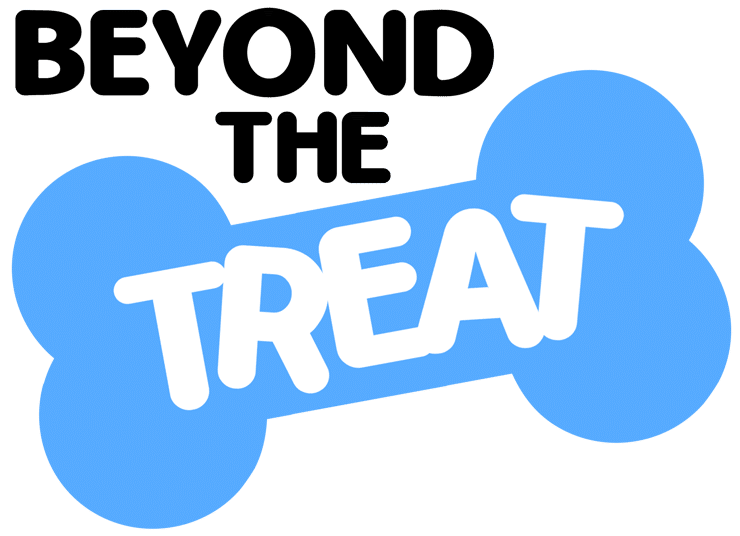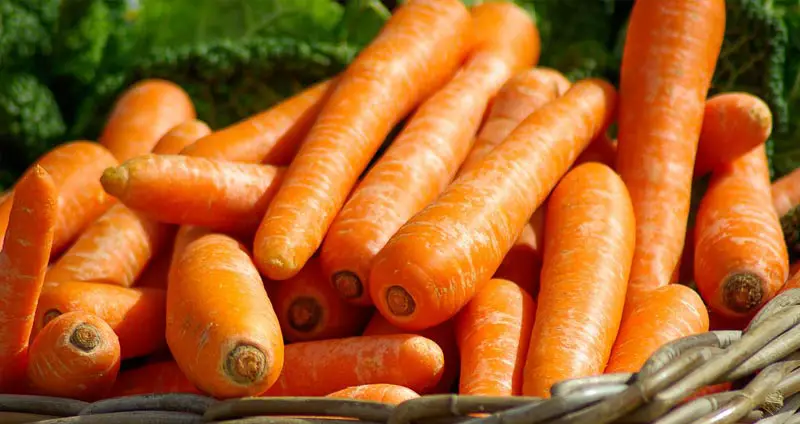Carrots are one of the most popular vegetables eaten by people. Although the fact that they help your eyesight is a myth, they still have plenty of awesome health benefits. Some of the best vitamins and minerals that they contain are fiber, beta-carotene, carotenoid, vitamin A, and potassium. They’re also extremely tasty and can be eaten in a few different ways. Because of the greatness of this vegetable, you may be wondering: Can hamsters eat carrots?
Yes, your hamsters can and should eat carrots occasionally! When they’re fed properly, carrots can be an excellent snack that hamsters go crazy for and benefit from nutritionally. However, problems can emerge if carrots are fed too frequently.
Table of Contents
What Do Hamsters Eat In The Wild?
To better understand whether carrots are healthy for your hamster or not, it helps to know what wild hamsters normally eat. Hamsters haven’t been kept as pets for a long time, so they’ve been running free throughout Syria, Greece, Romania, Belgium and China for centuries. During this time, they’ve eaten roughly the same kind of food, and their digestive systems have become optimized to better process that food.
This makes it very important to feed your hamster a diet that resembles the diet that wild hamsters eat — it’s what their bodies are designed for!
Hamsters are omnivores, but their diet actually looks a lot more like that of an herbivore. This means that wild hamsters indulge in many different kinds of food to get their essential nutrients, with most of the food consisting of plant matter. Nuts, grains, fruits, and vegetables make up a majority of the wild hamster’s diet.
The eating habit of a wild hamster can be described as scavenging, as they run around and eat basically anything that they can find. Hamsters do live in several different areas, so their specific diets do vary, but they all eat very similar foods. Some of the most common foods making up a wild hamster’s diet are grains, seeds, cracked corn, nuts, fruits, vegetables, insects, lizards, and frogs.
Health Benefits & Dangers Of Carrots
After looking at the natural diet of a hamster, it’s clear why carrots would make a good snack for them. Carrots don’t find their way into a hamster’s natural diet very frequently, but they do eat many foods that are similar in nature. Due to this, hamsters are able to digest and process carrots effectively to get some nutritional value from them.
When you look at the diet of a wild hamster, you may notice that sugar isn’t a very prominent part of it. Sure, hamsters do eat some fruits and vegetables that contain some sugar, but their daily sugar intake is still very low. So, in order to stay true to what their bodies are used to, hamsters shouldn’t eat foods that are high in sugar. Carrots, however, contain decent amounts of sugar.
Excess sugar consumption in hamsters can result in quite a few problems that should be easy to avoid with a healthy diet. The most prominent problem that occurs, obviously, is weight gain. Although a fat hamster may be adorable, it can cause other serious health problems after even a short while. Therefore, you must feed your hamster carrots in moderation to keep this problem from arising.
Despite the high sugar content, carrots make for a great snack for hamsters when fed correctly! It’s already clear that carrots contain plenty of vitamins and minerals, and many hamster owners state that they’re irresistible to their hamsters. The texture of the carrot is also quite hard, making it a good option for keeping a hamster’s teeth the correct length.
How To Properly Feed Your Hamster Carrots
The main reason why carrots aren’t the “perfect” snack for hamsters is because of their high sugar content. Hamsters are only able to process a small amount of sugar per day, so excess sugar can cause health problems that you’ll definitely want to avoid. So, feeding carrots in moderation is essential for maintaining good health in your hamster.
Due to their higher sugar content, carrots should be fed at the frequency as most other fruits — about 2-3 times per week in small amounts. The average serving size for a hamster is a little bit smaller than their head. These carrot pieces can either be cut up or left whole as hamsters will eat them either way. Carrot tops can also be fed, but they’re not nearly as tasty and delicious as the carrot flesh.
If feeding your hamster carrots still seems like something that you’ll want to do, you’ll need to make sure that their dietary needs are already being met. Carrots are quite nutritious, but they’re not nearly as nutrient-dense as hamster-specific foods. So, they can be fed as a snack once your hamster is getting all of the nutrients that they need to stay happy and healthy.
The staple of any hamster’s diet should be a high-quality pellet or mixed food. These foods are specially-formulated to meet the specific needs of a hamster, so they definitely can’t be passed on. A healthy blend of ingredients packed into a hard pellet keeps hamsters satisfied while also keeping their teeth healthy.
Good Carrot Alternatives For Hamsters
While carrots aren’t bad hamster treats by any means, they’re not the best either. Carrots have a healthy mix of nutrients, but a hamster-sized serving won’t be able to deliver too many of those nutrients to a hamster. So, if you’re opting to use a treat as a way to round out your hamster’s diet, there are a few options that are excellent for you. Below are two of our favorites.
OUR RECOMMENDATION
Supreme Tiny Friends Farm Lovelies Treats
These treats from Supreme Pet Foods are some of the most popular treats among hamster owners.
They’re extremely tasty for hamsters and feature only a handful of healthy and quality ingredients.
Two or three of these treats per week will keep your hamster’s diet interesting while remaining healthy.
OUR RECOMMENDATION
Brown’s Tropical Carnival Natural Select
A seed mixture is one of the best treats that a hamster can have, and this is among the most popular mixes.
Hamsters regularly eat seeds in the wild, so this very closely matches their natural diet.
A couple of seeds per day is all that a hamster needs to get a really diverse and tasty snack.



